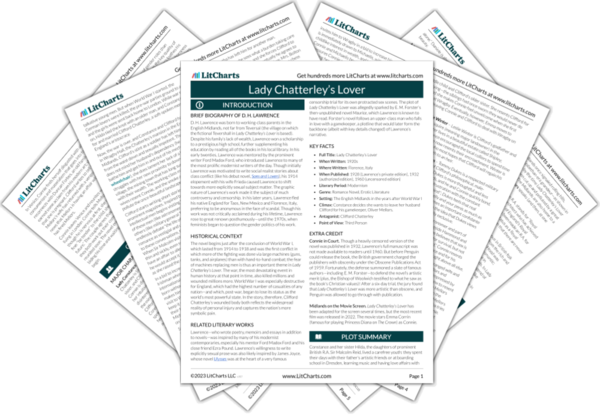Though Connie appears to be more attracted to Michaelis than she was to her Dresden lovers, she still has some of the same sexual habits: rather than giving herself over to the sensations of sex with Michaelis, she uses him as a “tool” to achieve her own orgasm. This utilitarian approach to sexual pleasure, especially when it comes from women, will be the subject of much critique in the novel.
